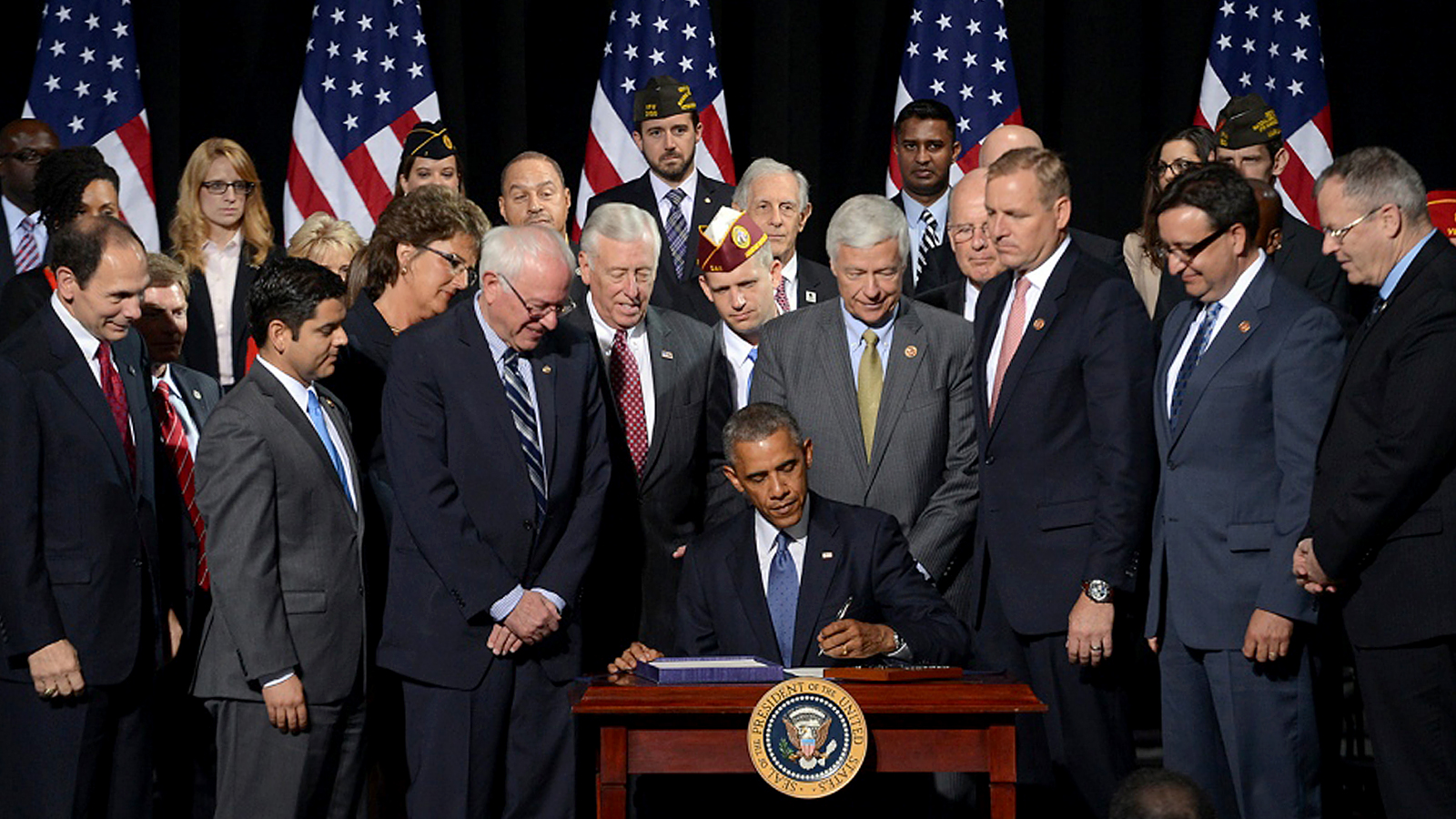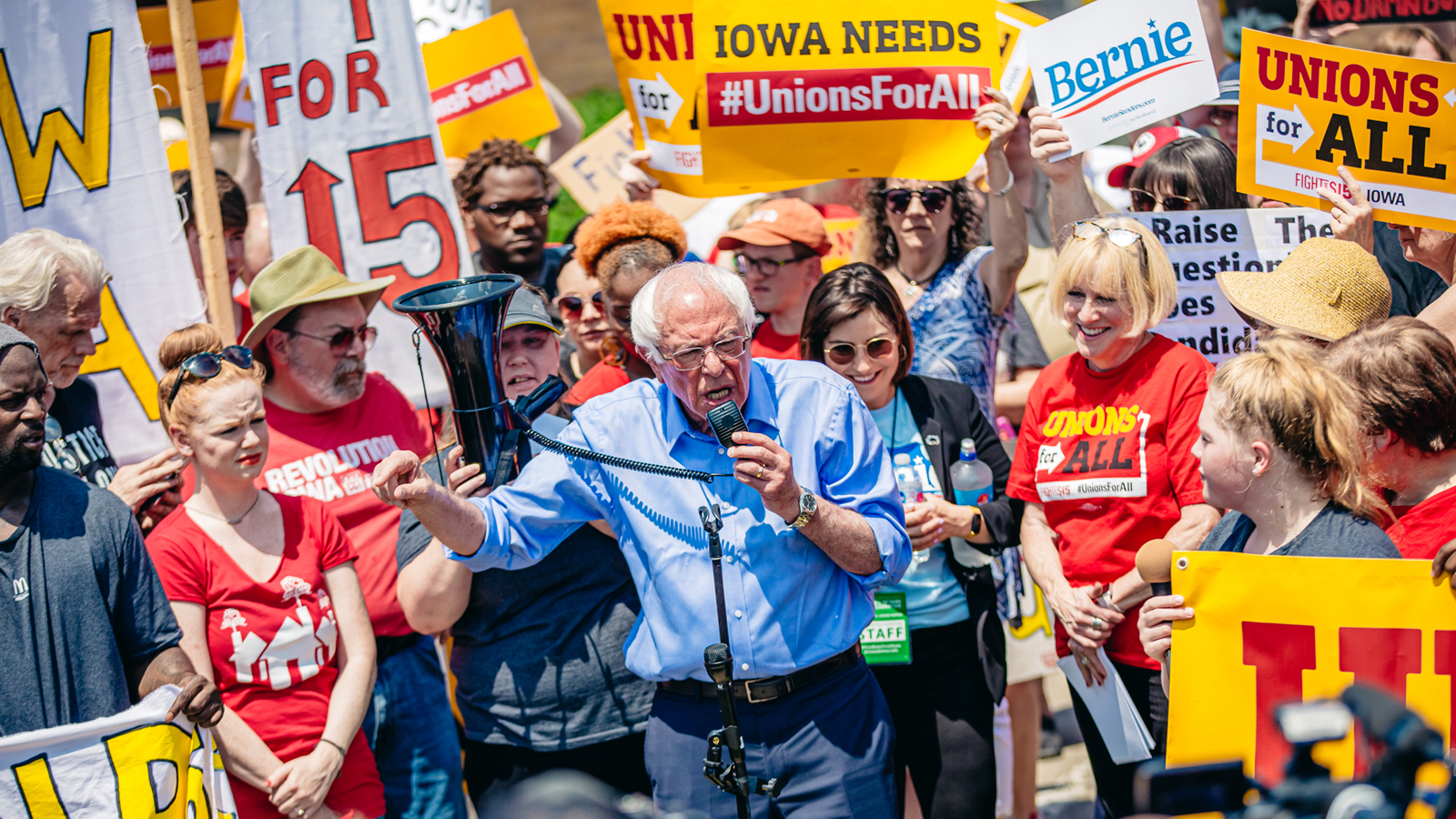Senator Bernie Sanders, who chaired the Senate Veterans Affairs Committee, wrote a bill to enact the Veterans’ Access, Choice, and Accountability Act of 2014 to improve healthcare access to veterans. Sanders was not sure a compromise could be reached with Republicans on veterans health care reform, and he rode a “roller coaster” of challenges leading up to the bill’s final passage, which President Barack Obama signed in August 2014.[1]
In the end, it was Sanders and Senator John McCain who made headlines when they struck a deal on legislation to reform the Department of Veterans Affairs, expand veterans’ access to healthcare and make it easier to fire VA officials for misconduct. The compromise measure included pieces of three VA bills that were introduced in the Senate. The legislation would allow veterans to see private doctors outside the VA system if they experienced long wait times or lived more than 40 miles from a VA facility. It also included provisions from legislation introduced in the Senate by Sen. Marco Rubio (R-Fla.), making it easier to fire VA officials. The bill also included the construction of 26 new VA medical facilities in 18 states and $500 million in unobligated VA funds to hire additional VA doctors and nurses.[2]
The agreement between Sanders and McCain, a Republican from Arizona, was considered the turning point in VA reform in the Senate. The two senators began negotiations after it looked as though VA reform might become another victim of the chamber’s gridlock with the competing Democratic and Republican bills — which would have been an embarrassing failure for both parties amid the national attention focused on the VA’s troubles.[2]
“I would have written a very, very different bill,” Sanders said. “Right now, we have a crisis on our hands, and it is imperative that we will deal with that crisis.”[2]
Sanders said that the measure includes some provisions that both sides will object to, but the bill was a significant step forward in responding to the VA wait list scandal that led to the resignation of VA Secretary Eric Shinseki, a retired four-star Army general.[2]
Before the agreement was reached, Sanders had been criticizing the Republican VA bills, which he said did not address the core of the VA’s problems. Republicans, meanwhile, had called Sanders’ legislation a “Christmas tree bill” that would cost too much. Earlier that year, Sanders’ omnibus VA bill was filibustered by Republicans, who complained that it was too expensive and that amendments would be limited.[2]
“If you want to make it better, we welcome your input,” McCain said on the floor. “But let’s not get hung up on certain other aspects of our differences that have characterized what most people would view as gridlock in this body.”[2]
Sanders said that the legislation, estimated to cost just under $2 billion, would be paid for through emergency appropriations. The provisions allowing veterans to seek care from non-VA facilities stem from legislation McCain, and other Republican senators introduced.[2]
The bill also provided in-state tuition for all veterans at public colleges and universities, GI Bill tuition benefits to the spouses of troops killed in the line of duty, and increased access to health care for sexual assault victims.[2]
 Back to Timeline
Back to Timeline


